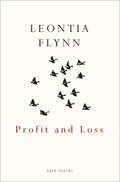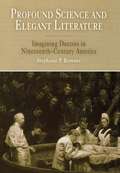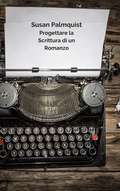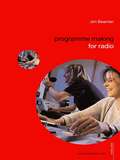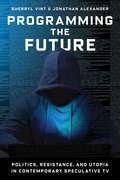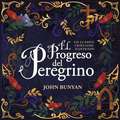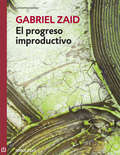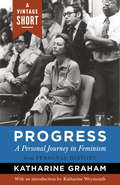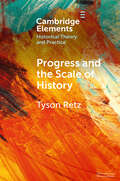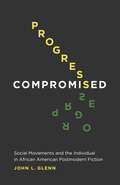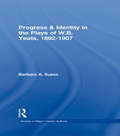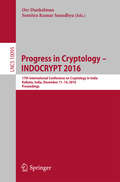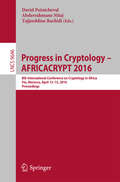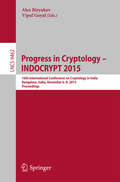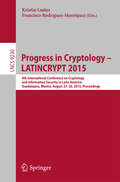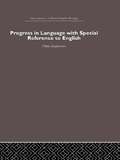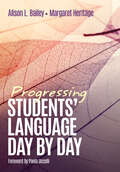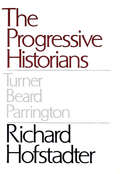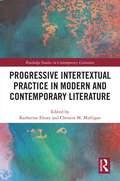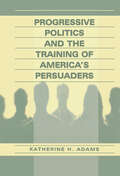- Table View
- List View
Profit and Loss
by Leontia FlynnCelebrated as an unusually original poet - nervy, refreshing, deceptively simple - Leontia Flynn has quickly developed into a writer of assured technical complexity and a startling acuity of perception. In her third collection, Flynn examines and dismantles a fugitive life. The first sequence moves through a series of rooms, reflecting on aspects of the author's personal and family history. Using the idea of the haunted house or the house with a sealed-off room, and Gothic tropes of madness, doubles, revenants and religious brooding, the poems consider ideas of inheritance and legacy. The second section comprises a magnificent long poem written in the months leading up to the banking crisis and presidential election of October 2008. Taking as its occasion a flat-clearing, it assumes a more public voice (inspired partly by Auden's 'Letter to Lord Byron'), and reflects on aspects of the rapid social and technological change of the last decade. An extraordinarily moving reflection on mutability and mortality prompted by the spring-cleaning of a life's detritus, 'Letter to Friends' evolves from a private reliquary to a public obsequy. Its collapse back into private griefs, including the poet's father's decline into Alzheimer's disease, is pursued in the third section of the book. Here the theme of a tallying of private and public balance sheets, of different kinds of profit and loss, widens to include poems of motherhood and marriage, the possibilities of hope and repair.
Profound Science and Elegant Literature
by Stephanie P. BrownerIn 1847, at the first meeting of the American Medical Association, the newly elected president reminded his brethren that the profession, "once venerated," no longer earned homage "spontaneously and universally." The medical marketplace was crowded and competitive; state laws regulating medical practice had been repealed; and professional practitioners were often branded by their lay competitors as aristocrats bent on establishing a health care monopoly. By 1900, the battles were over, and, as the president of AMA had hoped, doctors were now widely venerated as men of profound science, elegant literature, polite accomplishments, and virtue. In fact, by 1900 the doctor had replaced the minister as the most esteemed professional in the United States; disease loomed larger than damnation; and science promised to manage the discord, differences, and excesses that democracy seemed to license.In Profound Science and Elegant Literature, Stephanie Browner charts this trajectory--and demonstrates at the same time that medicine's claims to somatic expertise and managerial talent did not go uncontested. Even as elite physicians founded institutions that made professional medicine's authority visible and legitimate, many others worried about the violence that might attend medicine's drive to mastery and science's equation of rational disinterest with white, educated masculinity. Reading fiction by a wide range of authors beside and against medical texts, Browner looks to the ways in which writers such as Hawthorne, Melville, Holmes, James, Chesnutt, and Jewett inventoried the collateral damage that might be done as science installed its peculiar understanding of the body.A work of impressive interdisciplinary reach, Profound Science and Elegant Literature documents both the extraordinary rise of professional medicine in the United States and the aesthetic imperative to make the body meaningful that led many American writers to resist the medicalized body.
Progettare la Scrittura di un Romanzo
by Susan PalmquistLo sapevi che scrivere un libro si schiera nella top tre della lista dei desideri? Forse è anche nella tua e hai pensato di scrivere un romanzo o hai una storia da raccontare. Scrivere un libro è più difficile di quanto tu possa pensare… essere pubblicati è ancora più difficile, quindi ho messo insieme tutti i miei consigli in quello che chiamo Progettare la Scrittura di un Romanzo. Ti mostrerò come sviluppare delle buone abitudini di scrittura fin dal primo giorno, come cominciare e finire un libro, ma piú di tutto, condividerò con te dei segreti interni su come scrivere una grande storia, degli ottimi personaggi e una trama che farà pensare a editori e agenti che tu abbia scritto per anni. Mentre non è un libro su come scrivere in 30 giorni, questo è un progetto scritto in modo semplice da seguire per tutto il processo di scrittura. Qualcosa che avrei desiderato avere quando ho cominciato il mio percorso. Questo progetto ti mostrerà: Come scrivere una trama Come creare personaggi che i lettori ameranno Come scegliere la giusta persona che racconterà la storia Come scrivere dialoghi in modo che i lettori pensino che stiano origliando una vera conversazione Come mostrare e non raccontare Come assicurarsi che il tuo personaggio abbia un obiettivo e ci sia abbastanza conflitto nella storia Modi per dare un impatto emotivo E molto altro… Se pensi sia il momento giusto per cominciare a scrivere un romanzo, perché non prendere una copia di Progettare la Scrittura di un Romanzo per cominciare il proprio viaggio nello scrivere una storia che potrebbe diventare il prossimo best-seller?
The Program Era: Postwar Fiction and the Rise of Creative Writing
by Mark McGurlIn The Program Era, Mark McGurl offers a fundamental reinterpretation of postwar American fiction, asserting that it can be properly understood only in relation to the rise of mass higher education and the creative writing program. McGurl asks both how the patronage of the university has reorganized American literature and—even more important—how the increasing intimacy of writing and schooling can be brought to bear on a reading of this literature. McGurl argues that far from occasioning a decline in the quality or interest of American writing, the rise of the creative writing program has instead generated a complex and evolving constellation of aesthetic problems that have been explored with energy and at times brilliance by authors ranging from Flannery O’Connor to Vladimir Nabokov, Philip Roth, Raymond Carver, Joyce Carol Oates, and Toni Morrison. Through transformative readings of these and many other writers, The Program Era becomes a meditation on systematic creativity—an idea that until recently would have seemed a contradiction in terms, but which in our time has become central to cultural production both within and beyond the university. An engaging and stylishly written examination of an era we thought we knew, The Program Era will be at the center of debates about postwar literature and culture for years to come.
Programme Making for Radio
by Jim BeamanProgramme Making for Radio offers trainee radio broadcasters and their instructors focused practical guidelines to the professional techniques applied to the making of radio shows, explaining how specific radio programmes are made and the conventions and techniques required to produce them. This book describes how and why these methods are applied through the use of a behind-the-scenes glimpse at working practices and procedures used in the industry. It considers the constraints and incentives that limit or stimulate creativity and innovation within programme production. Programme Making for Radio examines the individual roles and responsibilities of the whole production team and the importance of team-working skills. Chapters focus on the specific requirements of specialist programmes and offer advice from a range of programme makers working in local and national broadcasting. There is a case study example that follows the progress of a feature programme from pitching the original idea, through assembling material to final transmission. Programme Making for Radio includes: a clear description of the role of each member of the programme making team, their duties and responsibilities practical tips on interviewing, mixing and presenting explanations of the key elements that make up a radio programme such as clips, wraps, packages, features and interviews with a full glossary of technical terms. This book is informative, accessible and comprehensive, covering the whole range of skills needed by the radio professional in the studio and on location.
Programming the Future: Politics, Resistance, and Utopia in Contemporary Speculative TV
by Professor Sherryl Vint Professor Jonathan AlexanderFrom 9/11 to COVID-19, the twenty-first century looks increasingly dystopian—and so do its television shows. Long-form science fiction narratives take one step further the fears of today: liberal democracy in crisis, growing economic precarity, the threat of terrorism, and omnipresent corporate control. At the same time, many of these shows attempt to visualize alternatives, using dystopian extrapolations to spotlight the possibility of building a better world.Programming the Future examines how recent speculative television takes on the contradictions of the neoliberal order. Sherryl Vint and Jonathan Alexander consider a range of popular SF narratives of the last two decades, including Battlestar Galactica, Watchmen, Colony, The Man in the High Castle, The Expanse, and Mr. Robot. They argue that science fiction television foregrounds governance as part of explaining the novel institutions and norms of its imagined futures. In so doing, SF shows allegorize and critique contemporary social, political, and economic developments, helping audiences resist the naturalization of the status quo. Vint and Alexander also draw on queer theory to explore the representation of family structures and their relationship to larger social structures. Recasting both dystopian and utopian narratives, Programming the Future shows how depictions of alternative-world political struggles speak to urgent real-world issues of identity, belonging, and social and political change.
El progreso del peregrino: Un clásico cristiano ilustrado
by John BunyanImpresionantes ilustraciones pintadas a mano y comentarios esclarecedores dan vida a esta obra maestra. Escrito desde la celda de la cárcel de Bunyan, El progreso del peregrino representa evocativamente una historia de lucha, perseverancia y fe. Con anotaciones y arte a través del libro, esta edición te invita a descubrir de nuevo la riqueza y los matices de este querido clásico.Originalmente escrito para el hombre común, el clásico cristiano de John Bunyan también ha encontrado su camino en las bibliotecas de académicos y universidades, una verdadera obra maestra para todos los tiempos. Su riqueza histórica, su simbolismo elocuente y su prosa deslumbrante han resistido la prueba del tiempo, y esta nueva edición ayuda a los lectores a apreciar la belleza perdurable que se encuentra en las palabras de Bunyan.Para los fanáticos desde hace mucho tiempo del cuento de Bunyan, o para aquellos que lo han encontrado por primera vez, esta edición ilustrada ofrece una nueva belleza y perspectiva. A los fanáticos del texto les encantarán las hermosas escenas pintadas a mano al comienzo de cada capítulo, y los lectores obtendrán una comprensión más profunda de la alegoría a partir de las anotaciones insertadas en cada capítulo de este cuento clásico.El progreso del peregrino ha inspirado a los lectores a través de los siglos a perseverar en su fe. Desde su publicación en 1678, este libro ha sido traducido a más de 200 idiomas. Es un best seller mundial, solo superado por la Biblia, y se ha convertido en un sello distintivo entre académicos y teólogos de todo el mundo. ¡Un elemento básico para cualquier biblioteca doméstica!
El progreso improductivo
by Gabriel ZaidA los ojos del autor nada es más urgente que superar la voluntad ciega del progreso per se. Este libro pone énfasis en el caso mexicano pero aborda un fenómeno característico de la globalidad. Ofrece una recomendación concreta: el saber, el poder y el dinero han de concentrarse en organismos piramidales que abandonen el espejismo del progreso. El cielo que nos tiene prometido el progreso, no acaba nunca de llegar. Una gran parte de la población vive en el limbo o en el purgatorio o el infierno: al margen de una vida mejor o descontenta de sus efectos contraproducentes. Ningún progreso parece hoy más urgente que la autocrítica del progreso. Este libro "merece ser leído y estudiado por todos". No sólo "ataca por igual los dogmas del neocapitalismo y los del (pseudo) socialismo". Propone "un modelo de desarrollo diferente", Octavio Paz Hace muchos años, Monterroso dijo que si "Borges escribiera en inglés, devoraríamos sus obras en malas traducciones. Esteparece ser el caso de El progreso improductivo. No es fácil aceptar una obra escrita por un mexicano en la tradición de Adam Smith, Gunnar Myrdal, Kenneth Galbraith y Robert Heilbroner; es decir, una obra bien escrita, que hace gala de imaginación, cultura y dominio de recursos literarios y, sobre todo, de su capacidad analítica". Adalberto García Rocha
Progress: A Personal Journey in Feminism
by Katharine Weymouth Katharine GrahamAn eBook short.From Katharine Graham's Pulitzer Prize-winning memoir Personal History, a stirring narrative of how the legendary publisher of the Washington Post became a feminist. With an introduction from her granddaughter, Katharine Weymouth, publisher of the Post until 2014. Katharine Graham was the newspaper mogul who piloted the Washington Post through the crises of the Pentagon Papers and Watergate: but first she had to overcome the harsh expectations of a male-dominated industry, and her harshest critic of all--herself. Inheriting ownership of the paper from her father, and assuming its leadership in 1963 after the death of her husband, Philip, Graham found herself the only woman in a man's world--a world, however, that was beginning to change. From Georgetown suppers to board meetings, from The Second Sex to Gloria Steinem, this is the refreshingly honest account of how the most powerful woman in Washington came into her own.
Progress and the Scale of History (Elements in Historical Theory and Practice)
by Tyson RetzThe idea of progress is a product of historical thinking. It is a bold interpretation of history that combines understandings of the past, perceptions of the present and expectations of the future. This Element examines the shifting scale of this past, present and future configuration from antiquity to the present day. It develops five categories that reveal the conceptual features of progress together with the philosophies of history in which they have been enmeshed, from temporal outlooks that held no notion of progress to universal histories that viewed progress as a law of nature, from speculation on the meaning and direction of history to the total rejection of all historical constructions. Global in scope and conversant with present-day debates in the theory and philosophy of history, the argument throughout is that the scale on which we conceive history plays a determining role in how we think about progress.
Progress Compromised: Social Movements and the Individual in African American Postmodern Fiction
by John GlennIn Progress Compromised, John L. Glenn examines how African American literature engages in debates about the political and cultural tensions prompted by black social movements during the 1950s and 1960s. Glenn presents detailed case studies of four major novels that illuminate specific periods crucial in the history of African American political struggles, including campaigns for racial integration, the zenith of the civil rights movement, black nationalism, and the immediate legacy of the civil rights era. His analysis provides a nuanced understanding of black postmodern culture and shows how writers use fiction to postulate new modes of resistance and selfhood that defy societal constraints.In Colson Whitehead’s The Intuitionist, the first black female elevator inspector and her male counterparts reconsider their notions of what progress means for African Americans newly integrated into civil service and mass industry. Alice Walker’s Meridian observes the novel’s title character as she copes with the psychological distress experienced by activists participating in the civil rights movement, emphasizing how they bear the psychic and emotional weight of their struggle for equality. John Oliver Killens’s satire The Cotillion; or, One Good Bull Is Half the Herd considers class stratification among black communities and social organizations by following the protagonists as they expose the biases of a society women’s group, set against a backdrop of late-1960s black nationalism. Finally, Toni Morrison’s Tar Baby concerns members of the post–civil rights generation who struggle to achieve self-renewal through introspection while confronting unresolved issues about racial identity and socioeconomic mobility.Progress Compromised showcases the discourse on black cultural politics circulating within late-twentieth-century African American literature, revealing how postmodern fiction investigates the effects of historical movements on individuals, their respective communities, and their efforts to resist social conformity and retain personal identity.
Progress & Identity in the Plays of W.B. Yeats, 1892-1907 (Studies in Major Literary Authors #25)
by Barbara A. SuessFirst Published in 2003. Routledge is an imprint of Taylor & Francis, an informa company.
Progress in Cryptology – INDOCRYPT 2016
by Orr Dunkelman Somitra Kumar SanadhyaThis book constitutes the refereed proceedings of the 17th International Conference on Cryptology in India, INDOCRYPT 2016, held in Kolkata, India, in December 2016. The 23 revised full papers presented in this book were carefully reviewed and selected from 84 submissions. The focus of the conference includes works on Public-Key Cryptography, Cryptographic Protocols, Side-Channel Attacks, Implementation of Cryptographic Schemes, Functional Encryption, Symmetric-Key Cryptanalysis, Foundations, and New Cryptographic Constructions.
Progress in Cryptology - AFRICACRYPT 2016
by David Pointcheval Abderrahmane Nitaj Tajjeeddine RachidiThis bookconstitutes the thoroughly refereed proceedings of the 8th International Conference on theTheory and Application of Cryptographic Techniques in Africa, AFRICACRYPT 2016,held in Fes, Morooco, in April 2016. The 18papers presented in this book were carefully reviewed and selected from 65submissions. The aim of Africacrypt 2016 is to provide an international forumfor practitioners and researchers from industry, academia and government fromall over the world for a wide ranging discussion of all forms of cryptography. Topicsof interest are such as lattices; elliptic curves; secret-key cryptanalysis;efficient implementations; secure protocols; and public-key cryptography.
Progress in Cryptology -- INDOCRYPT 2015
by Alex Biryukov Vipul GoyalThis bookconstitutes the refereed proceedings of the 16th International Conference onCryptology in India, INDOCRYPT 2015, held in Bangalore, India, in December 2015. The 19 revised full papers presented in this book were carefully reviewed andselected from 60 submissions. The papers are organized in topical sections on publickey encryption; cryptanalysis; side channel attacks; information theoreticcryptography; and lightweight cryptography.
Progress in Cryptology -- LATINCRYPT 2015
by Kristin Lauter Francisco Rodríguez-HenríquezThis book constitutes the proceedings of the 4th International Conference on Cryptology and Information Security in Latin America, LatinCrypt 2015, held in Guadalajara, Mexico, in August 2015. The 20 papers presented were carefully reviewed and selected from 49 submissions. They were organized in topical sections named: cryptographic protocols; foundations; post-quantum cryptography; symmetric key cryptanalysis; we still love pairings; curves in cryptography; and cryptographic engineering.
Progress in Language, with special reference to English
by Otto JespersenFirst published in 2006. Routledge is an imprint of Taylor & Francis, an informa company.
Progress Monitor, English Language Arts, [Grade] 5, Student Benchmark Assessments
by William H. SadlierProgress Monitor, English Language Arts, [Grade] 5, Student Benchmark Assessments
Progressing Students' Language Day by Day
by Margaret Heritage Dr Alison L. BaileyBecause content and language learning go hand in hand New content standards integrate content and language in ways prior standards have never done. That’s why it’s so critically important that teachers attend to both content and language development when introducing new subject matter, especially for English learners. Here’s your opportunity to get started tomorrow and every day thereafter: Alison Bailey and Margaret Heritage’s all-new Progressing Students’ Language Day by Day. What’s so utterly ground-breaking about this book is Bailey and Heritage’s Dynamic Language Learning Progression (DLLP) process: research-based tools for obtaining much deeper insight into a student’s language progress, then for identifying the most appropriate instructional steps to elevate language proficiency and content knowledge. Step by step, Bailey and Heritage describe how to Engage with students to advance their development of sophisticated, high-leverage language features for explaining content Use the DLLP approach to formative assessment, then plan your teaching in response to assessment evidence Examine words, sentences, and discourse --the three dimensions of language that are part of the DLLP process for cultivating language development Discover how leadership support and communities of practice (CoPs) can facilitate a successful and sustainable implementation of the DLLP process Listen more closely and uncover new ways to advance content learning with Progressing Students’ Language Day by Day directly by your side. “Alison Bailey and Margaret Heritage open our eyes to the often invisible and context-specific language demands embedded in content learning. Understanding the ubiq¬uitous and highly influential role of language in learning takes time and effort but leads to transformative practice. Progressing Students’ Language Learning Day by Day offers an insightful and concrete framework to begin this transformation.” — Paola Uccelli, Professor of Education, Harvard University
Progressing Students' Language Day by Day
by Margaret Heritage Dr Alison L. BaileyBecause content and language learning go hand in hand New content standards integrate content and language in ways prior standards have never done. That’s why it’s so critically important that teachers attend to both content and language development when introducing new subject matter, especially for English learners. Here’s your opportunity to get started tomorrow and every day thereafter: Alison Bailey and Margaret Heritage’s all-new Progressing Students’ Language Day by Day. What’s so utterly ground-breaking about this book is Bailey and Heritage’s Dynamic Language Learning Progression (DLLP) process: research-based tools for obtaining much deeper insight into a student’s language progress, then for identifying the most appropriate instructional steps to elevate language proficiency and content knowledge. Step by step, Bailey and Heritage describe how to Engage with students to advance their development of sophisticated, high-leverage language features for explaining content Use the DLLP approach to formative assessment, then plan your teaching in response to assessment evidence Examine words, sentences, and discourse --the three dimensions of language that are part of the DLLP process for cultivating language development Discover how leadership support and communities of practice (CoPs) can facilitate a successful and sustainable implementation of the DLLP process Listen more closely and uncover new ways to advance content learning with Progressing Students’ Language Day by Day directly by your side. “Alison Bailey and Margaret Heritage open our eyes to the often invisible and context-specific language demands embedded in content learning. Understanding the ubiq¬uitous and highly influential role of language in learning takes time and effort but leads to transformative practice. Progressing Students’ Language Learning Day by Day offers an insightful and concrete framework to begin this transformation.” — Paola Uccelli, Professor of Education, Harvard University
Progressive Intertextual Practice In Modern And Contemporary Literature (Routledge Studies in Contemporary Literature)
by Katherine Ebury Christin M. MulliganThis edited volume aims to reposition intertextuality in relation to recent trends in critical practice. Inspired by the work of Sara Ahmed in particular, our authors explore and reconfigure classic theories of authorship, influence and the text (including those by Roland Barthes, Michel Foucault and Harold Bloom), updating these conversations to include intersectionality specifically, broadly understood to include gendered, racial and other forms of social justice including disability, and the progressive impact of the transmission and transformation of texts. This diverse volume includes discussions of major canonical works such as James Joyce’s Ulysses alongside the recent contemporary literature by authors such as Siri Husvedt and Maggie O’Farrell, as well as theoretical interventions. This volume also engages with how intertextuality can facilitate interdisciplinary and ekphrastic thinking and representation, as the inspiration of music and the visual arts for texts and their transmission is addressed. The choice of intertexts become deliberately political, ethical and artistic signifiers for the authors discussed in this volume, and our contributors are thus enabled to address topics ranging from visual impairment to Shakespearean motherhood to the influence of Jazz culture on writing on the Northern Irish Troubles.
Progressive Politics and the Training of America's Persuaders
by Katherine AdamsAt the beginning of the 20th century, Progressive reformers set up curricula in journalism, public relations, and creative writing to fulfill their own purposes: well-trained rhetors could convince the United States citizenry to accept Progressive thinking on monopolies and unions and to elect reform candidates. Although Progressive politicians and educators envisioned these courses and majors as forwarding their own goals, they could not control the intentions of the graduates thus trained or the employers who hired them. The period's vast panorama of rhetoric, including Theodore Roosevelt's publicity stunts, muckraker exposés, ad campaigns for patent medicines, and the selling of World War I, revealed the new national power of propaganda and the media, especially when wielded by college-trained experts imbued with the Progressive tradition of serving a cause and ensuring social betterment. In this unique volume, Adams' chronicles the creation of this advanced curriculum in speaking and writing during the Progressive era and examines the impact of that curriculum on public discourse. Unlike other studies of writing instruction, which have concentrated on freshman curriculum or on a specific genre, this book provides a historical and cultural analysis of the advanced composition curriculum and of its impact on public persuasion. Adams surveys American instruction at state and private schools across the country, with special attention given to the influential Progressive universities of the Midwest. She draws on a wide variety of primary data sources including college catalogs, course assignments, departmental minutes, speeches, and journals, and includes an extensive bibliography of research sources concerning advanced composition instruction and American rhetoric before World War II. As a resource offering remarkable historical insights on the history of writing instruction in America, this volume is of great interest to scholars and students in rhetoric, communication, and technical writing.
